Why the Traditional Approach Costs Too Much
For many startups, the biggest expenses in intellectual property management come from inefficiencies. Manual processing, intermediaries, and fragmented communication quietly inflate costs. Each agent layer adds its own markup, while every translation or status check consumes billable hours.
Over time, these hidden leaks turn patent management into one of the least efficient areas of company operations. The classic model of email coordination, spreadsheets, and opaque vendor chains remains slow and expensive.
This article shows where money actually goes, how automation changes the equation, and how startups using iPNOTE’s AI-powered workflow have already reduced their IP expenses by two to five times without sacrificing quality.
Where Savings Come From: Six Key Levers
1. AI triage for office actions
Reviewing office actions manually typically takes around two hours per case.
With iPNOTE’s AI assistant, the same task takes 10–15 minutes, cutting routine time by 87 percent. The system identifies key issues, extracts dates, and generates draft summaries for expert validation. Teams can then focus on reasoning rather than repetitive work.
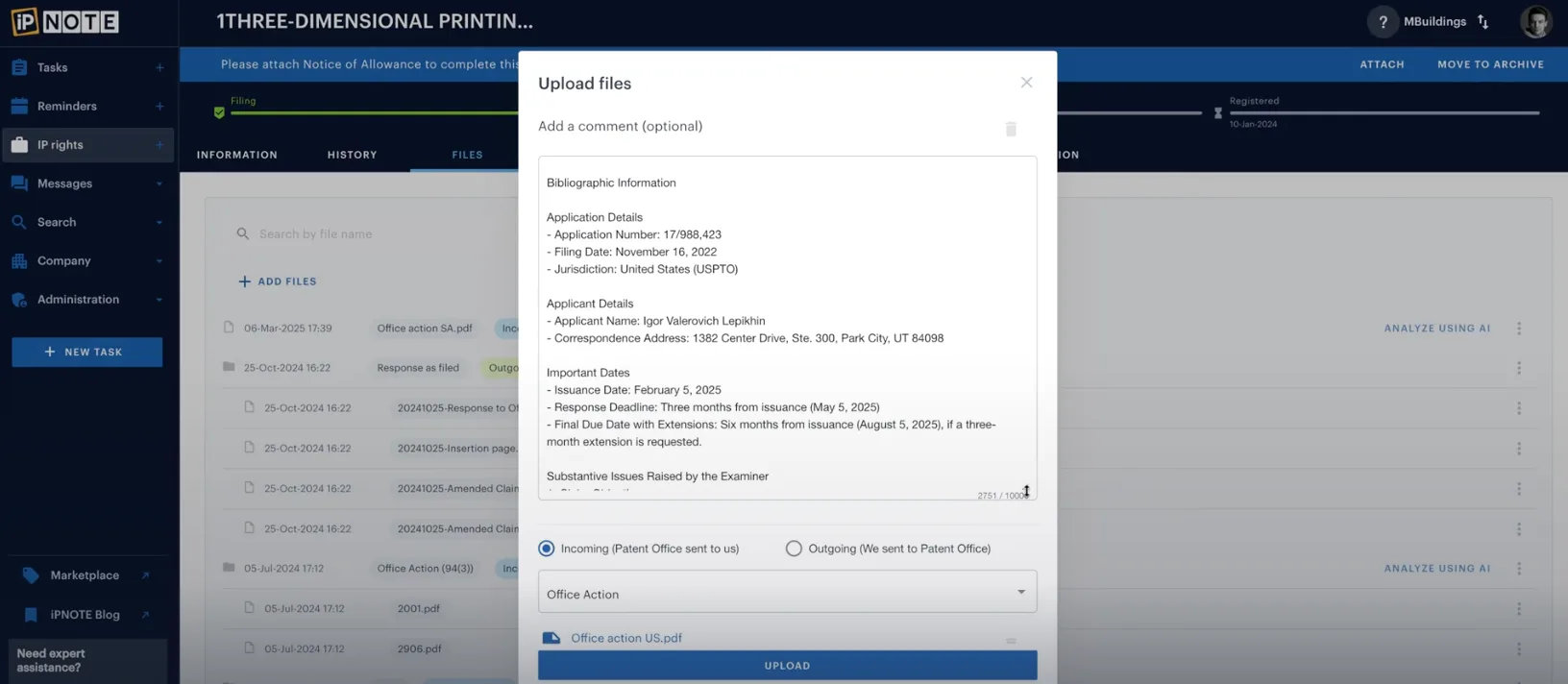
2. Smarter renewals pricing
Across markets, renewal fees range from $33 to over $400 per patent, with a global average near $150. The difference often comes from intermediaries such as regional firms billing through global agents, each adding a margin.
The main source of savings is not pushing one vendor for a discount but redesigning the process to remove unnecessary layers.
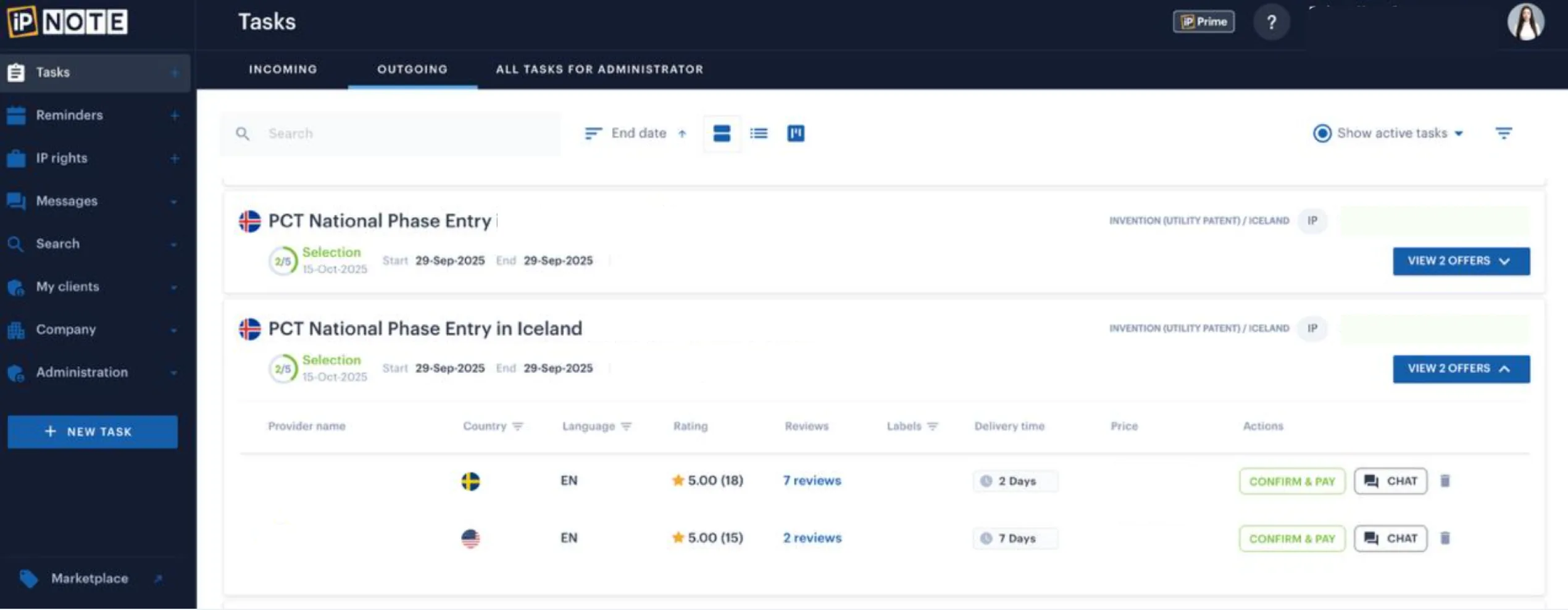
3. Automated renewals orders
AI reminders convert into scheduled renewals three months before due dates. This proactive approach stabilizes average prices around $100 per patent, which saves $50–100k annually for portfolios of about 1,000 patents.
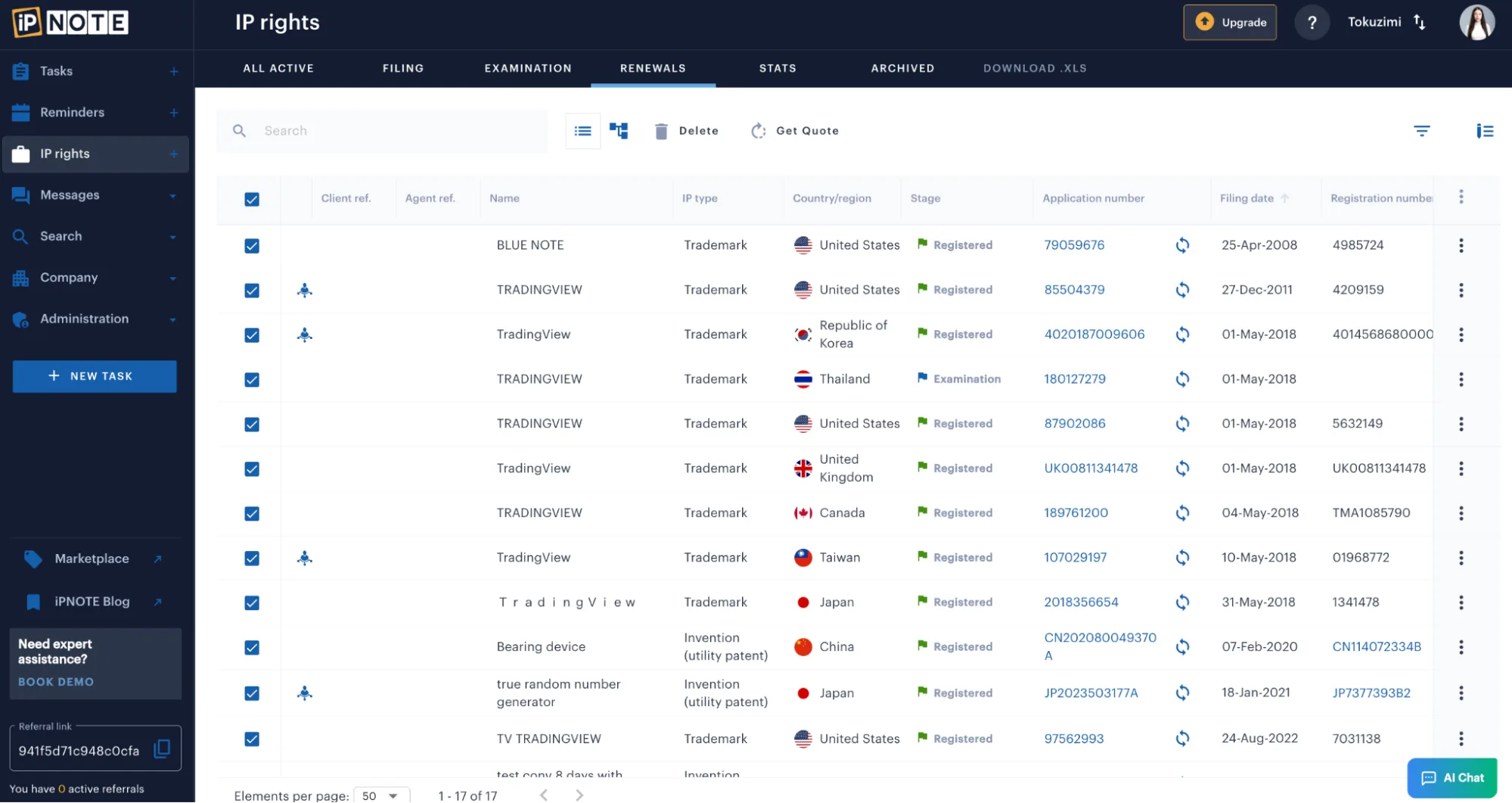
4. Automatic data import from global IP databases
Patent details sync directly from official sources. There is no manual entry, no missed fields, and no double work—only accurate data across all jurisdictions.
5. End-to-end workflow in one window
All actions, from office actions to renewals and invoicing, occur within a single interface. There is no need to switch between tools or re-upload documents. This reduces coordination errors, shortens cycles, and lowers operational costs.
Real Startup Cases
Case A — Office Actions (US & EU)
A international company managing over 900 Office Actions per year streamlined its patent operations with iPNOTE’s AI-powered summaries and centralized client–agent workflows.
By automating document review and communication tracking, the company reduced its average legal cost per Office Action from $850 to just $500 with iPNOTE, achieving significant savings without compromising quality.
This improvement also enhanced transparency between internal teams and outside counsel, resulting in faster approvals and more predictable budget planning.
Case B — Renewals in 12–15 countries
A biotech company used iPNOTE’s marketplace to manage renewals across multiple jurisdictions. Competitive quotes and auto-reminders kept the price near $100 per renewal, saving $50–100k per year.
The Economics of the New Approach
The math behind automation is straightforward.
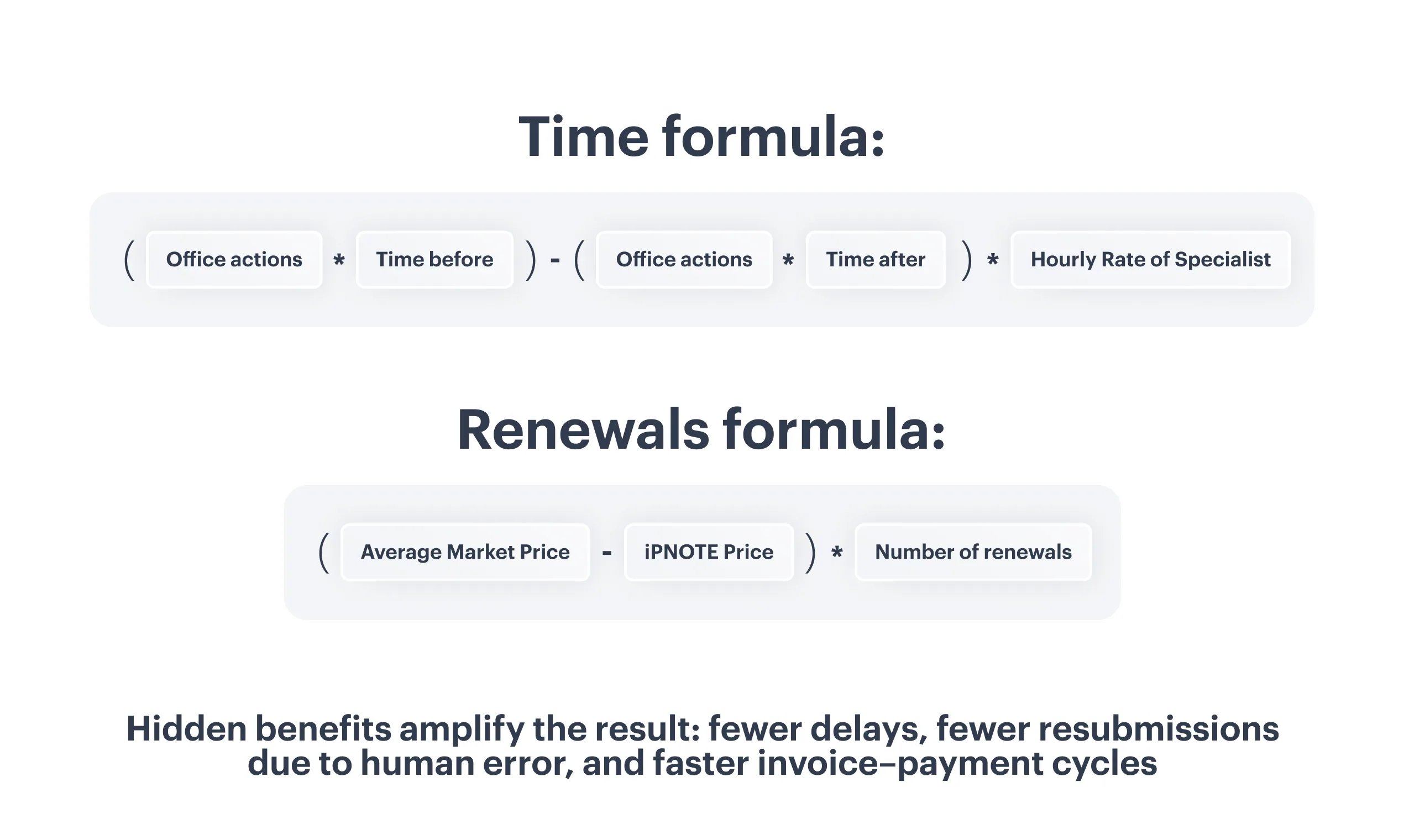
Introducing automation does not require a full-scale transformation. The simplest way to start is by testing one process:
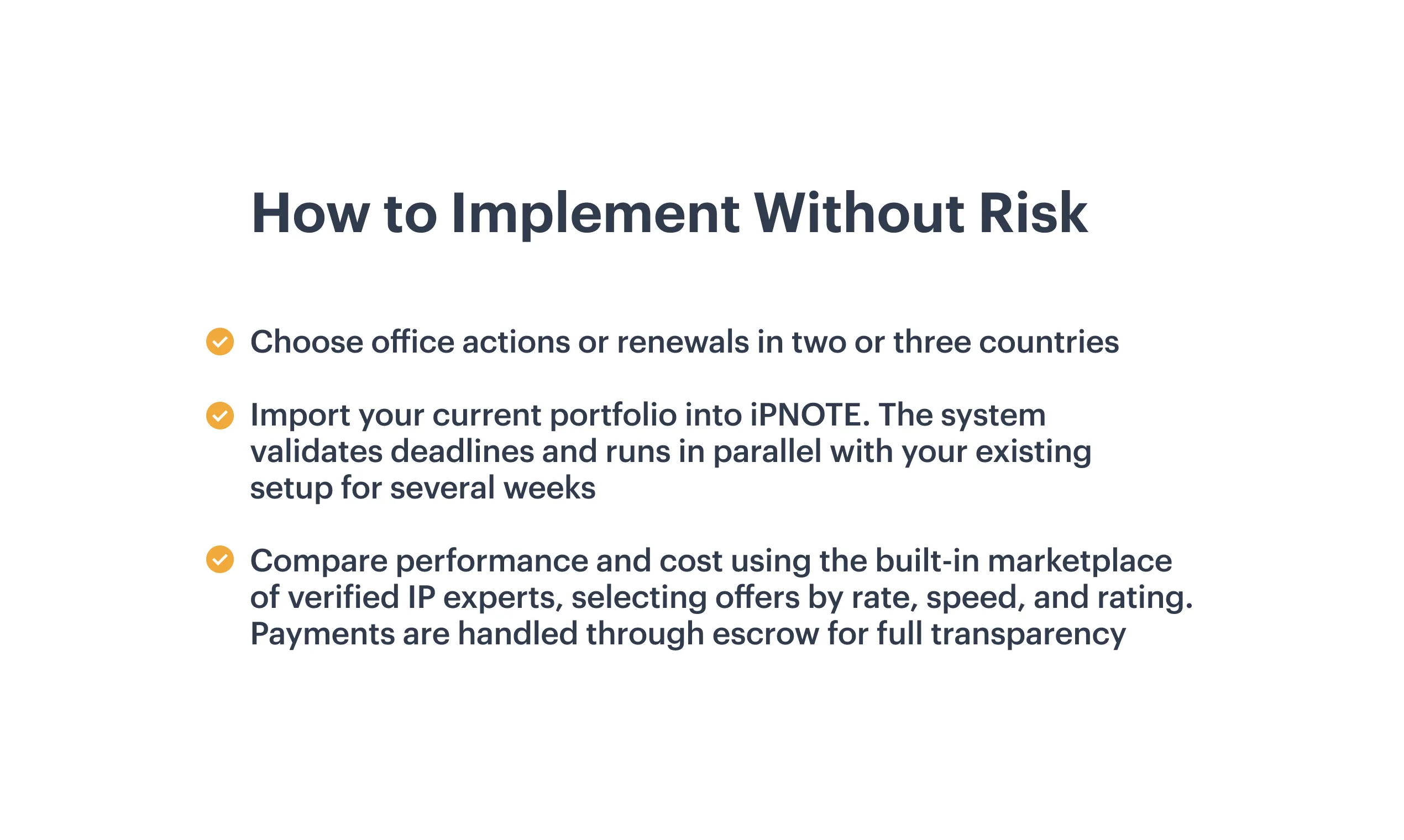
This phased approach guarantees visibility and control at every stage while automation complements, rather than replaces, your current process.
Addressing the Common Doubts
“AI is just hype.”
Artificial intelligence in IP management does not aim to replace experts. It handles the routine that slows them down, as extracting deadlines, classifying examiner arguments, and preparing first-draft summaries, so specialists can focus on what requires real judgment: novelty analysis, patentability evaluation, and strategy development for responses.
The system automatically highlights key elements in each office action (deadlines, citations, examiner’s reasoning) and prepares structured drafts with suggested next steps.
Experts still take responsibility for interpretation, argumentation, and final decision-making, while AI provides a clear, ready framework that enhances accuracy and speed.
“Cheaper means worse.”
This belief often stems from how traditional IP service chains are organized.
Renewal costs rise primarily due to multi-tier intermediaries rather than superior legal quality. Global providers delegate work to regional firms, who then outsource to local agents and each of them adding its own markup.
By removing these extra layers, companies pay directly for the professional work itself instead of administrative overhead. On iPNOTE, clients connect with the same trusted local attorneys through fixed, escrow-protected rates displayed upfront. Transparent competition ensures fair pricing, while verified profiles maintain high quality.
Startups working with iPNOTE achieve significant savings simply by restructuring how services are delivered, not by lowering professional standards.
“Where are the real numbers?”
The financial data supporting iPNOTE’s efficiency come from open market sources and verified industry studies.
Global renewal fees typically range from $33 to $430, with an average around $150. Each added intermediary can raise that figure by up to 300–500 percent.
For office actions, manual analysis usually takes 1.5–2 hours, whereas iPNOTE’s AI triage completes the task in about 10–15 minutes—a documented 80–90 percent reduction in time.
During onboarding, iPNOTE runs these benchmarks against the client’s actual data: number of office actions, renewal volumes, current rates, and projected automated prices.
This ensures that savings are measurable, verifiable, and specific to each portfolio.
Start Smart: How to See Results in 30 Days
iPNOTE offers a risk-free introduction to automation: a free portfolio prescreen and across two tracks—office actions and renewals.
After the analysis, clients receive a tailored efficiency forecast and can launch a 30-day pilot with the AI assistant. Within the first month, most startups record a two- to five-fold increase in cost efficiency, fewer errors, and faster collaboration with agents.
This approach allows companies to see measurable results before making any long-term commitments.
Request your free portfolio prescreen on iPNOTE and find out where your savings start.






